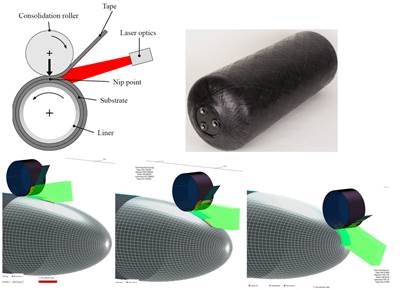COMSOL releases version 6.0 for multiphysics simulation software
COMSOL Multiphysics introduces platform feature for model management, adds module for uncertainty quantification analysis and includes important updates and performance enhancements, all with boosted productivity in mind.
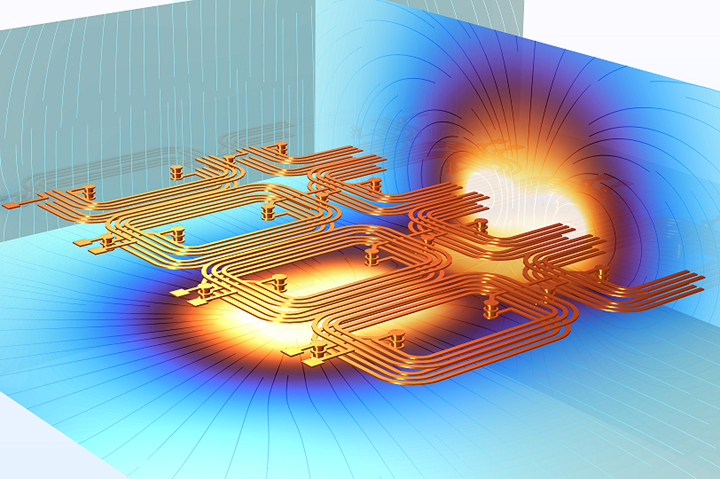
COMSOL version 6.0 delivers performance improvements and simplifies simulation of many important applications, such as printed circuit board (PCB) design (pictured).
COMSOL Inc. (Burlington, Mass., U.S.) has released version 6.0 of COMSOL Multiphysics, the company’s cross-platform finite element analysis (FEA) solver and multiphysics simulation software. The release introduces the Model Manager, a new workspace in COMSOL Multiphysics that enables efficient simulation data management and collaboration. Also introduced with version 6.0 is the Uncertainty Quantification Module, an add-on that uses probabilistic design methods to quantify uncertainty in analyses and predetermined safety margins. Further, version 6.0 brings improvements to the solvers with performance speedup by a factor of 10 in engineering areas such as heat radiation and models subjected to nonlinear structural material behavior.
The Model Manager, which complements the company’s Model Builder and Application Builder, is fully integrated in the COMSOL Multiphysics user interface and is designed for simulation data management, version control, tracking changes and advanced search functionality within models, CAD data and other related external files. It provides a structured workspace where colleagues and teams can collaborate within their organizations, or with external parties. Efficient data storage that keeps changes made to previous versions, and a simplified setup of branches for merging them for parallel model development, also contribute to more efficient modeling and simulation workflow, COMSOL says.
The COMSOL Model Manager provides version control and common storage for efficient collaboration in simulation projects within engineering groups, across departments and enterprises and even between countries.
To allow full collaboration across enterprises, COMSOL’s floating network license type allows users from anywhere within and outside of the license holder’s organization to access a centralized Model Manager installation. This also includes collaborators across geographical and territorial borders. Additionally, a local Model Manager installation is included with all licenses — even those that are not floating network-based — to provide a platform for building an individual user’s file storage structure, while updating versions and tracking changes of their modeling projects.
While the Model Manager expands COMSOL’s footprint within the world of engineering design and development, the Uncertainty Quantification Module makes it possible to produce more complete, accurate and useful multiphysics models. Based on probabilistic design methods, users can, with reliability analysis, look at questions such as how manufacturing tolerances affect the intended performance of the final product, to prevent the over- and under-design of devices and processes. Screening and sensitivity analyses reveal which parameters are more important than others, which can be used to efficiently test the validity of basic model assumptions, for example. Uncertainty propagation is used to assign probability distributions to the output quantities of interest.
The Uncertainty Quantification Module reveals how variability of input parameters affects the simulation results.
Jacob Yström, technology director of numerical analysis at COMSOL, notes that a strength of this feature is that it can be applied to any physical simulation covered by COMSOL Multiphysics. Users are not limited to a certain field or application area, such as structural analysis, but can perform the same types of uncertainty analyses on applications based on acoustics, fluid flow, electromagnetics, etc., even when these phenomena are coupled.
COMSOL Multiphysics version 6.0 also includes important updates to the software platform and add-on products, such as performance improvements through speedup and memory consumption by a factor of 10 for certain engineering applications. Feature enhancements include more efficient electromagnetic simulation of PCB designs and a new realm for acoustics modeling, flow-induced noise. Details about new features and improvements across the entire product suite are available in the COMSOL Multiphysics version 6.0 release highlights.
COMSOL Multiphysics, COMSOL Server, and COMSOL Compiler software products are supported on the following operating systems: Windows, Linux and macOS, including the macOS M1 processor. Download COMSOL version 6.0.
Read Next
OTOMcomposite develops software for Composites 4.0 production using laser-assisted tape placement and winding
Optical thermal optimization model (OTOM) software enables inline monitoring and control for improved part quality and reduced production time and cost of in-situ consolidated thermoplastic composites and Type IV pressure vessels.
Read More“Structured air” TPS safeguards composite structures
Powered by an 85% air/15% pure polyimide aerogel, Blueshift’s novel material system protects structures during transient thermal events from -200°C to beyond 2400°C for rockets, battery boxes and more.
Read MoreDeveloping bonded composite repair for ships, offshore units
Bureau Veritas and industry partners issue guidelines and pave the way for certification via StrengthBond Offshore project.
Read More

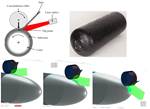





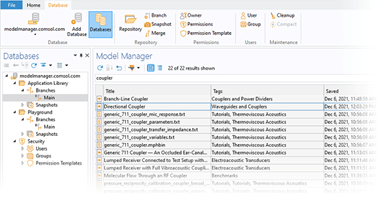
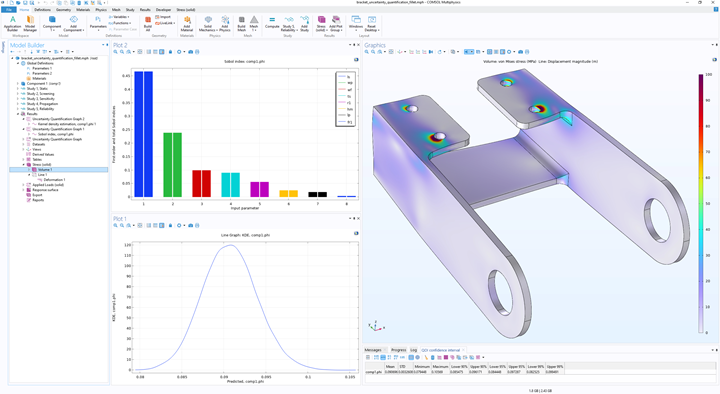


.jpg;maxWidth=300;quality=90)








